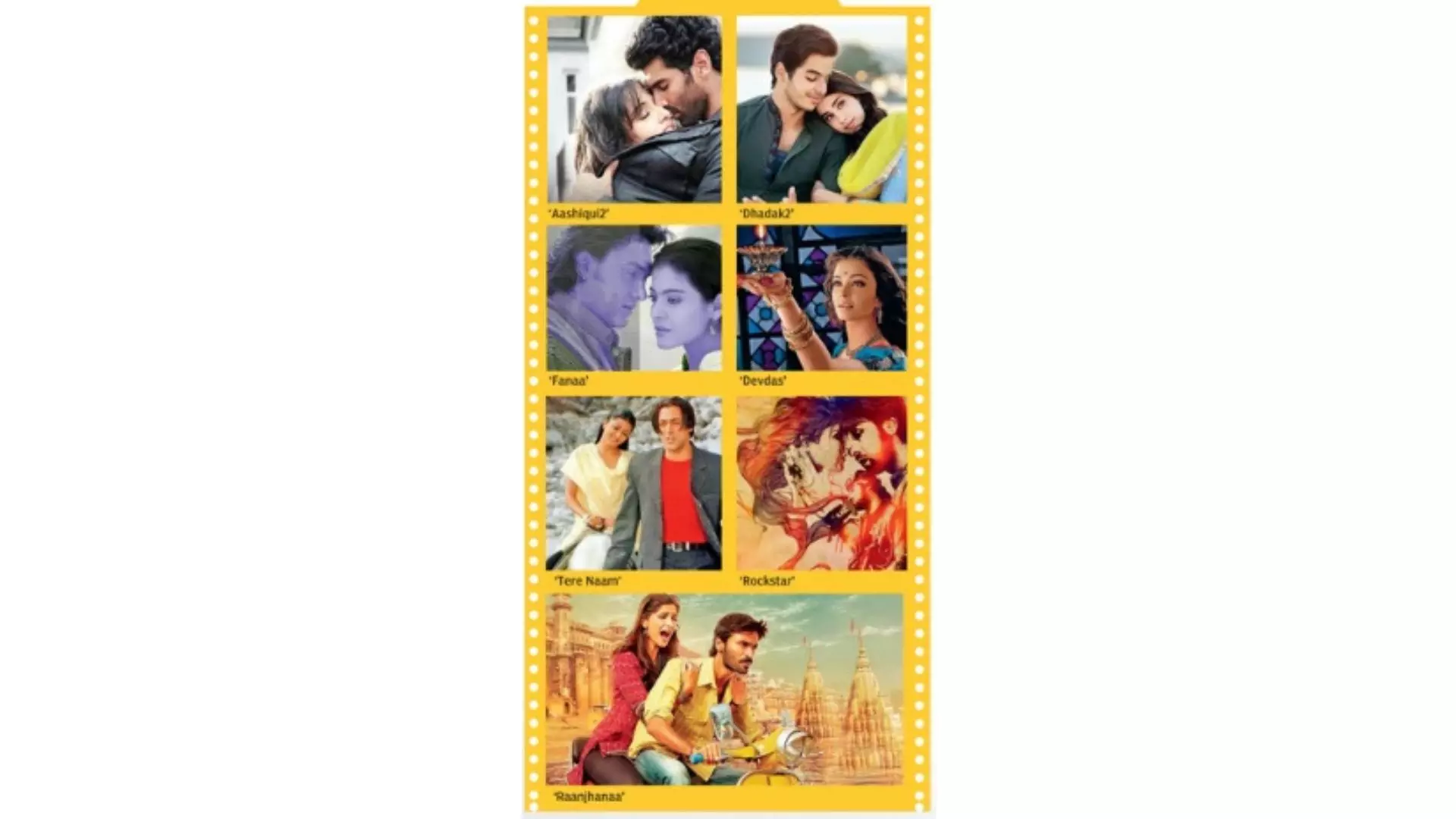Why tragic love stories are successful
As the curtain falls on tales of romance gone heartrendingly wrong, sadness holds audiences in thrall with its poignancy

From the timeless saga of Devdas to the haunting melodies of Rockstar, Bollywood has been captivated by tragic love stories. These narratives fascinate audiences, leaving a lasting impression on cinema.
What draws viewers to tales of heartbreak and loss? Join us as we explore the enduring allure of sad endings in love stories, from classic tales to modern masterpieces, represented by iconic films like Kal Ho Naa Ho, Raanjhanaa, Fanaa, Tere Naam, that have touched millions and offer insights into the workings of the human heart. Seasoned scriptwriters who have given life to some of these unforgettable tales talk to us about the undeniable pull of stories about star-crossed lovers.
The story justifies the end
“In a love story, one always wants the lovers to unite in the end. But yes, sometimes the story stays with you longer if they haven’t done so. Incomplete love stories haunt you more than the ones that reach happy endings.
On the other hand, some happy endings leave you with a sense of joy and hope. And each kind has its place and relevance. The characters lead the writer to the end of the story. In a story that is truthfully told, the end presents itself to the writer and is not imposed by market trends — an end that is in some way coded into the set-up of the characters and the premise.
The best kind of end — whether happy or sad — is one which makes the audience feel it really could not have ended any other way." — Pooja Tolani, scriptwriter & executive board member, The Screenwriter’s Association of India
The legacy of tragic love in Telugu cinema
“In Telugu cinema, Devdasu is considered a classic hit. Since then, whenever a love story is written, many filmmakers aim to continue that tragic theme. Often, love stories with happy endings lack depth and leave the audience with a sense of predictability. Some notable Telugu films that follow this pattern include Balachander’s Maro Charitra, Dasari’s Premabhishekam, Majnu Vamsy’s Maharshi, Ashok Kumar’s Abhinandhana, Maniratnam’s Geetanjali, Suresh Krishna’s Prema, and Selvaraghavan’s 7 G Brundavan Colony. More recently, films like Arjun Reddy, Color Photo, Uppena, and Baby, have also taken a similar path.” — Gopi Mohan, screenplay and story writer, Telugu film industry
Building emotional depth
“From the great William Shakespeare’s Romeo and Juliet, to John Green’s Fault In Our Stars, tragedies stay longer with audiences — maybe because they reflect our reality more closely. There is nothing like a good heartbreak on screen, is there?
However, from a scriptwriting perspective, if an audience does not believe that the two people concerned love each other like no other, it is likely that they will not feel the heartbreak as much either. One needs to build the story of love with deep-seated emotion, portrayed through characters that are both believable and likable. It is unlikely that a sad ending will get the desired impact if the characters have not been fleshed out fully, their vulnerabilities exposed and their longings milked for gasps around the movie theatres. This can only happen by design and craft — that is where the screenwriter comes in. If it’s not on paper, it mostly won’t be on screen.
A case in point is Imtiaz Ali’s Rockstar which came back to theatres a couple of weeks ago. It’s a tragedy that has grown in stature and respect over the years since its release in 2011. The story of unrequited love and longing still manages to hold audience attention, in a way that many other films released in the same year may not. Not surprisingly, people are flocking to theatres to revisit it. It is because the writing was solid, and it was supported equally well by direction and acting.” — Sudeep Nigam, scriptwriter
The universality of sad endings
“Love stories with sad endings have a timeless appeal. It is so because sad stories tap into fundamental aspects of the human experience.
The emotional resonance, empathy, sympathy etc., that sad love stories evoke are powerful. People find that these stories resonate with their own lives. Heartbreak and unrequited love are universal experiences, making tragic love stories more relatable.
Besides this, the Indian performing arts are about the navarasas, and these stories bring these rasas to life. We are happy, sad, afraid and hopeful for the characters.
Writers, filmmakers and artistes also use love stories with sad endings as mediums for exploring themes such as loss, longing and the human condition. The emotional intensity and depth often associated with tragic love stories strike a chord with the public.
However, different people like different things, and the popularity of any story is dependent on execution, character development, conceptualisation and other creative inputs.” — Ankur Suman, scriptwriter
Storytellers are thus united in their view that the enduring appeal of sad endings in love stories lies in their ability to capture the complexities of the human experience, resonating deeply with audiences across generations.
From the depths of despair to the heights of passion, these narratives offer a poignant reflection of life’s greatest joys and sorrows, leaving an indelible mark on the hearts of viewers worldwide.
To misquote the Bard of Avon, ‘love is such sweet sorrow that we often return to it on the morrow.’

